Sales Training Brisbane: Common Mistakes You Should Avoid
Achieving sales excellence is the lifeblood of any business and in the vibrant business landscape of Brisbane, mastering the art of selling is crucial for success. But did you know that even expert sales people aren’t immune from making mistakes? In fact, occasional errors are part and parcel of any learning journey. Whether you’re just starting out as a salesperson in Brisbane or perhaps an experienced sales manager seeking to refine your leadership skills and generate better results, this blog post is designed to help you sidestep the most common pitfalls.
With insights from renowned experts, practical tips, and evidence-based strategies gleaned from years of sales training in Brisbane, let’s unpack the mistakes that can obstruct your path to victory – so you know precisely what to avoid. Discover how you can transform these potential stumbling blocks into stepping stones towards hitting the target sales quota, increase revenue and maximise sales success.
Some of the common mistakes businesses should avoid include not identifying the specific needs of your team, relying too heavily on outdated techniques, neglecting ongoing training and coaching, and failing to measure the effectiveness of your training program. By avoiding these mistakes and focusing on customised, effective sales training solutions like those offered by Dynamo Selling, you can help your team succeed and grow.
Common Mistakes in Brisbane’s Sales Training
When it comes to sales training in Brisbane, there are common mistakes sales leaders make that hinder company growth and sales success. These mistakes often arise from a lack of understanding or implementation of effective strategies, techniques and sales training programs. By being aware of these pitfalls, sales professionals can avoid them and enhance their delivery performance in the field.
One common mistake is relying too heavily on scripted sales pitches instead of personalising the approach for each client. While having a framework or structure is important, rigid scripts can make interactions sound robotic and insincere. Effective communication requires active listening and adaptability, tailoring the conversation based on the client’s behaviours, needs and preferences.
Another mistake is neglecting the importance of building rapport with potential clients. Building trust and establishing a genuine connection with customers greatly increases the likelihood of closing a sale. Sales professionals in Brisbane should focus on creating meaningful relationships and a good impression rather than solely pushing for immediate transactions.
Ineffective time management is another prevalent issue among sales teams. Poorly structured schedules and disorganised workflows can l ead to missed opportunities or rushed interactions with clients. Time management skills are crucial for maintaining a healthy pipeline and ensuring that each customer receives the attention they deserve.
Failure to stay updated with market trends and industry knowledge is yet another mistake commonly seen in sales training and training courses. Understanding Australia’s changing landscape allows sales professionals to adapt their strategies and processes, anticipate customer needs, and position themselves as trusted advisors in their respective fields.
By recognizing these errors and taking proactive steps to address them, organisations can position themselves for greater success and make the most of Brisbane’s dynamic marketplace.
Ineffective Client Communication
Communication plays a pivotal role in successful sales engagement among potential prospects. In Brisbane’s sales training, ineffective client communication can hinder progress and prevent mutually beneficial outcomes. Understanding and addressing this challenge is essential in order to enhance sales success and capabilities.
In general, clients appreciate clear and concise communication that focuses on addressing their specific needs and pain points. Why is effective client communication so critical? Well, consider this scenario: a salesperson in Brisbane meets with a potential client, but fails to understand their requirements due to poor listening skills, lack of comprehension or simply pushing unwanted products in the hope of receiving a commission. This level of negotiation skills often leads to missed opportunities and strained relationships.
To avoid such pitfalls, it is crucial for sales professionals in Brisbane to actively listen and engage in two-way communication with clients. Ask open-ended questions to understand the client’s needs, concerns, and expectations and respond with empathy and expertise. This form of effective client communication builds trust and fosters a sense of partnership, thereby increasing the likelihood of closing the sale. By truly understanding the client’s perspective, sales professionals can create an irresistible and compelling value proposition.
In addition to active listening, effective client communication also involves clear articulation of ideas, types of services provided and the processes involved when handling issues. Sales professionals should be able to convey their message accurately and persuasively, focusing on the unique benefits that their product or service offers. Instead of overwhelming clients with technical jargon that might confuse them, sales professionals should highlight how their offerings address the client’s pain points and provide tangible benefits.
Limited Teamwork in Achieving Goals
Another common mistake that hinders sales success is limited teamwork among sales teams when it comes to achieving goals. In many organisations, trainers and coaches observe that achieving a sales forecast is seen as an individual effort, with each salesperson solely responsible for their own targets and objectives. However, this approach overlooks the power of collaboration and synergy that comes from working together towards a common goal.
Imagine a sales team where each member is solely focused on their own tasks and action plans with no collaboration or support from their colleagues. This lack of teamwork can lead to missed opportunities, inefficiencies, and overall lower productivity. When individuals work in silos and fail to communicate or share insights and strategies, they not only miss out on valuable learning opportunities but also create a disengaged and fragmented group of people.
To overcome this mistake and foster a culture of teamwork within your sales team, it is essential to implement strategies and workshop exercises that promote collaboration and communication. By working together, sales teams can avoid missed opportunities and inefficiencies, improve overall productivity and achieve sales success. Prioritising business needs and encouraging teamwork in every workplace can create a more cohesive dynamic while providing valuable learning opportunities.
Techniques to Evade Common Sales Training Mistakes
Sales training is not without its challenges and there are certain mistakes that can hinder its effectiveness in driving sales success. Recognising these mistakes and implementing techniques to avoid them is crucial for maximising the impact of your training efforts.
To start with, one common mistake is focusing solely on product knowledge rather than developing a deep understanding of the customer’s needs. While product knowledge is important, effective selling requires empathy and the ability to uncover customer pain points and offer tailored solutions. By training your sales team to actively listen to customers’ responses, and provide personalised recommendations, you can empower them to build stronger relationships with clients and drive successful sales outcomes.
Another mistake to avoid is neglecting ongoing training and development. Sales professionals should continually enhance their skills by staying updated on industry trends, new selling techniques, and customer behaviour patterns. Providing regular skill-building workshops or investing in online sales training courses can help keep your team motivated, engaged, and equipped with the latest sales strategies.
Furthermore, failing to provide adequate support and sales coaching for your sales team is another mistake that can hinder growth. Regular one-on-one coaching sessions and constructive feedback can help identify areas for improvement, boost confidence, and provide guidance on overcoming challenges. A supportive environment that fosters continuous learning and growth contributes to long-term sales success.
- According to the Journal of Personal Selling & Sales Management, 44% of salespeople give up after one rejection, highlighting a significant need for resilience training.
- A 2018 study conducted by CSO Insights found that only 57% of sales reps meet or exceed their quotas, suggesting that existing sales training may not be effective enough.
- A Salesforce report indicates that 84% of all sales training is lost after 90 days, indicating a lack of reinforcement and sustained learning strategies in many programs.
Augmenting Knowledge and Developing Skills
In the world of sales, knowledge is power. Without a solid foundation of product knowledge, industry trends, and effective selling techniques, sales professionals can find themselves struggling to close deals and meet their targets. That’s why augmenting knowledge and developing skills is crucial for sales success.
One common mistake that sales professionals make is assuming that once they’ve completed their initial training, they have all the knowledge they need to excel in their role. However, industries are constantly evolving, customer preferences change, and new competitors enter the market. In order to stay ahead of the game, sales professionals must continuously update their knowledge and skills.
To augment knowledge, sales professionals can engage in ongoing learning opportunities such as workshops, seminars, webinars, or online courses. These resources provide valuable insights into industry best practices, cutting-edge sales strategies, and emerging trends. Taking advantage of these learning opportunities allows sales professionals to stay current with the latest information and tools available.
Another aspect of developing skills involves honing techniques that are specific to individual salespeople. While there are fundamental principles that apply to all sales situations, each person brings their unique strengths and weaknesses to the table. By identifying areas for improvement and working on specific skill sets, sales professionals can become more effective in their interactions with clients.
| Common Mistake | Solution |
| Lack of ongoing learning | Engaging in continuous education |
| Neglecting industry updates | Staying informed about trends |
| Ignoring personal skill development | Identifying and working on weaknesses |
Augmenting knowledge and developing skills is just one piece of the puzzle for sales success. In order to truly excel, sales professionals must also prioritise emotional intelligence and understand the nuances of neuroselling.
Advancement through Emotional Intelligence and Neuroselling
Sales is not just about having a persuasive pitch or mastering closing techniques. It’s also about connecting with clients on an emotional level and understanding their needs, desires, and pain points. This is where emotional intelligence and neuroselling come into play.
Emotional intelligence, often referred to as EQ, is the ability to recognise and understand one’s own emotions as well as those of others. By developing emotional intelligence, sales professionals can better empathise with their clients, build rapport, and establish trust. This deep understanding and psychology of human emotions allows them to adapt their communication style, approach, and solution offering to suit each individual client.
Let’s consider a scenario where a sales professional is meeting with a potential client who has expressed concerns about budget constraints. Instead of bombarding the client with detailed product features and pricing information, an emotionally intelligent salesperson would take a step back to acknowledge the client’s concerns. They might then explore alternative financing options or present a cost-benefit analysis that demonstrates long-term value.
Neuroselling takes emotional intelligence to another level by integrating the neuroscience behind decision-making and persuasion into the sales process. This could involve using storytelling techniques that leverage emotions or framing the product or service in a way that appeals to specific neural triggers. By understanding how the brain works and what motivates people to buy, sales professionals can tailor their approach for maximum impact.
Mastering Different Sales Techniques with Coaching
Coaching plays a pivotal role in helping sales professionals master different sales techniques and reach new levels of success. While self-study and experience are valuable, structured training modules from sales training sessions provide more personalised guidance, allowing salespeople to sharpen their skills and adapt to various selling situations. With the assistance of expert coaches from Dynamo Selling, professionals can learn a diverse range of sales techniques, enhancing their effectiveness in closing deals and building long-term client relationships.
One of the key benefits of coaching is that it enables sales professionals to identify and capitalise on their strengths while addressing any areas that require improvement. In a coaching relationship, salespeople can receive constructive feedback on their techniques, communication style, and overall performance. Coaches act as mentors, providing insightful guidance based on their extensive sales experience and knowledge, helping individuals refine their approach to selling and marketing strategy.
Imagine a salesperson who excels at building rapport with clients but struggles with prospecting and closing deals. Through coaching sessions, they can receive targeted strategies for improving their closing skills, such as identifying customer objections and overcoming them effectively. This personalised approach allows sales professionals to tackle specific challenges head-on and develop comprehensive solutions.
Furthermore, coaching offers the opportunity for sales professionals to expand their repertoire of sales techniques. Each client is unique, and different situations may require adapting one’s sales approach accordingly. By working with a coach, individuals gain exposure to a wide array of effective techniques and tools that can be applied in different scenarios. These may include consultative selling, relationship-building strategies, objection handling techniques, negotiation tactics, or persuasive communication skills.
Think of coaching as a toolbox full of different techniques. The more techniques you have at your disposal, the better equipped you are to handle diverse selling situations. Just like a skilled craftsman who selects the right tool for each task, a well-coached sales professional can choose the most appropriate technique for the specific needs of each prospect or client.
Moreover, coaching goes beyond technical sales skills and addresses mindset and emotional intelligence aspects that are crucial to sales success. Sales professionals need to have confidence in their abilities, resilience in the face of rejection, and the ability to understand and connect with clients on an emotional level. A coach can help individuals develop a growth mindset, manage their emotions effectively, and build a strong rapport with clients by using techniques such as mirroring and active listening.
At Dynamo Selling, we offer comprehensive sales training programs that incorporate these elements to equip sales professionals with the skills they need to succeed in today’s competitive market. Through personalised guidance, targeted feedback, exposure to diverse techniques, and the development of a mindset and emotional intelligence, individuals can elevate their sales performance significantly.
By leveraging the expertise of coaches from Dynamo Selling, professionals in Brisbane can unlock their true potential and achieve greater sales success.




